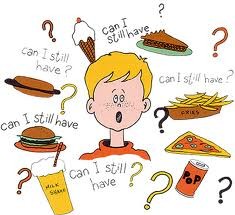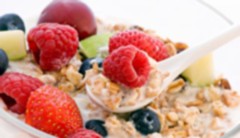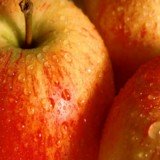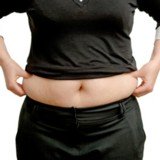Diet for IBS Overview
Introduction
Diet for IBS patients and sufferers is critical for them to maintain in order to overcome the symptoms of IBS (Irritable bowel syndrome). Which include abdominal pain or discomfort,diarrhea and or constipation. IBS is a functional bowel disorder characterized by changes in the consistency of and frequency of stool for at least three months.
It is the most common disorder seen by a primary health care physician, with 10 - 15% of the American population having it. We are in a time were eating healthy is crucial for everyone who is walking on the face of this earth! More so those who are diabetic, obese or those who are suffering from ibs, as they are more vulnerable, the list is endless. What we eat and how much of it we consume can have a positive or negative effect on our bodies.
 The foods that you should particularly avoid when you are an ibs patient or sufferer include cereals and legumes as they contain damaging fiber, gluten and other toxins. Such foods also trigger IBS symptoms.What gluten does is that it causes constipation and leaky gut syndrome.
The foods that you should particularly avoid when you are an ibs patient or sufferer include cereals and legumes as they contain damaging fiber, gluten and other toxins. Such foods also trigger IBS symptoms.What gluten does is that it causes constipation and leaky gut syndrome.
It is commonly found in processed foods. Canola oil, pomace olive oil should also be avoided as well as toxic herbs such as liquorish and mustard. Foods that contain caffeine and alcohol may cause diarrhea so stay clear of them.
Diet for IBS syndrome patients and sufferers with diarrhea
A low-fiber diet can help control diarrhea during an IBS flare up. There are certain foods that produce loose stools and these should be avoided if you are suffering from diarrhea. Sometimes adjusting the temperature of your food can help relieve diarrhea as well as changing the number of meals you eat and choosing different foods.
These are just examples that you may include in your diet for ibs. They may not necessarily work for everyone as our make up is different and we all tolerate different foods differently. However, if you have not tried something out yet, go for it and see if it will help you. Who knows, maybe it will. Below is a list of things that may cause diarrhea:
- -liquorish
- -whole grains
- -large meals
- -mayonnaise
- -garlic
- -corn
- -nuts
- -processed meats
- -too much coffee
- -bacon
- -hot beverages
- -sugar
- -fatty foods
- -broccoli
- -chocolate
- -beer
- -raw fruits
- -prune juice
- -spinach
- -cauliflower
- -dried beans
- -raw vegetables
- -highly spiced foods
- -red wine
- -soups
- -shellfish
So this means that you may need to minimize the amounts of these foods listed above. Either take in as little amounts as possible if you really can't stay clear of them. Or if your diarrhea is quite bad and you are at the end of your tether with it, then avoiding these foods will not be difficult. Here is a list of a few tips that may help control diarrhea:
- Limit dairy products and take a calcium supplement as you do so. Calcium is important in strengthening our bones and strong healthy teeth. You may also use a lactose supplement.
- Try by all means and limit fat in your diet for ibs. Choose foods that are low in fat, baked foods as opposed to fried foods, and low-fat versions of dairy products, such as cottage cheese and yogurt.
- Try a low-fiber diet. This means less of the raw fruits and vegetables, fewer bran-based grains, breads and cereals and more cooked foods.
- Drink lots of fluids which are at room temperature in between meals. Best choices of the fluids include juices that are not acidic, broth, water, sports drinks and nectar.
- Don't skip meals, and when you have them, eat smaller portions. After you eat, try and rest a bit, this can help to slow down the rate at which food passes through the intestines.
- Very hot meals should also be avoided as they tend to cause diarrhea.
Sodium and potassium may be lost when one has diarrhea, so make sure you eat foods that are high in potassium, such as bananas, if your system tolerates them, avocados,and boiled or mashed potatoes amongst others. The bright side if that there are also some foods which you can eat that are known to help alleviate diarrhea. These include;
- -toast
- -whipped potatoes
- -carrots
- -avocados
- -nectar
- -barley
- -green beans
- -boiled white rice
- -applesauce
- -cream of rice
- -crackers
- -barley
- -Metamucil
- -peeled, grated apples
- -oats or oat bran
- -pears
- -yogurt with live cultures
- -weakly brewed tea
- -smooth peanut butter
- -pectin
Diet for IBS syndrome patients and sufferers with constipation (IBS-C)
When you have constipation, you must eat a high-fiber diet as it may help yo a great deal. There are a few important points that you should have in mind when planning your diet.

- Add more fiber to your diet, a little at a time. If you add too much fiber too quickly it may cause bloating, gas or cramping. Remember to also increase your fluid intake at the same time.
- You must eat smaller, more frequent meals. For instance, four or five small meals instead of three large meals.
In order to have a high fiber diet, you must choose your foods carefully. When looking for snacks, choose those that are high in fiber such as popcorn or yogurt with bran cereal. Have more fresh fruits and vegetables such as raisins and broccoli just to name a few. When it comes to breads, choose more whole grain breads such as oat-bran or raisin bran. Also include in your diet dried peas, beans, nuts and seeds as tolerated. You can read more detailed information on this in the article ibs constipation
Diet for IBS syndrome and acid flare up
Generally speaking, there are some foods that are commonly reported to cause gas and bloating. These include beans, onions, carrots, celery, wheat germ, prunes, apricots, raisins, bananas, brussel sprouts, bagels and pretzels. So this means that these foods should be taken in small amounts. Also, slowly adding soluble fiber to your diet for ibs may alleviate some of your symptoms.
As mentioned earlier you will need to drink plenty of fluids as you gradually increase the fiber content of your diet. Soluble fiber is very beneficial for IBS patients and sufferers. It is the single greatest dietary aid for preventing IBS symptoms in the first place, as well as relieving them once they occur.
Facts about soluble fiber
Soluble fiber is not typically found in foods that you would think of as "fiber" such as bran or raw leafy vegetables. It is actually found in foods commonly thought of as starches. Soluble sugar has no calories because it passes through the body intact without being digested by enzymes in the gastrointestinal tract (GI).
Having soluble fiber as the foundations for your meals is a good thing to do because they are the safest, easiest and most versatile. These can be rice, pasta and noodles, barley, oatmeal and rice cereal. Other examples of soluble fiber include pumpkins, sweet potatoes, turnips, beets, mangoes quinoa, soy, corn meal, yams, mushrooms and papayas just to name a few. Papayas are also digestive aids that relive gas and indigestion.
Some of the world's most serious health threats may be preventable through the regular consumption of and appropriate levels of soluble fiber,including high blood pressure, diabetes, obesity, and many gastrointestinal disorders. Soluble fiber soothes and regulates the digestive tract, stabilizes the intestinal contractions and normalizes the bowel function from either extreme, that is, both diarrhea and constipation. Did you know that when soluble fiber is fermented in the large intestines, short-chain fatty acids are produced.
These serve to stabilize or regulate blood sugar levels and lower LDL (low-density lipoproteins) or in lame man's language- bad cholesterol in blood. Soluble fiber also increases the production of helpful bacteria in the colon. So here are a tonne of reasons why we should include soluble fiber in our diet, more so diet for ibs. You may read a more detailed article about this in natural cures for acid reflux


